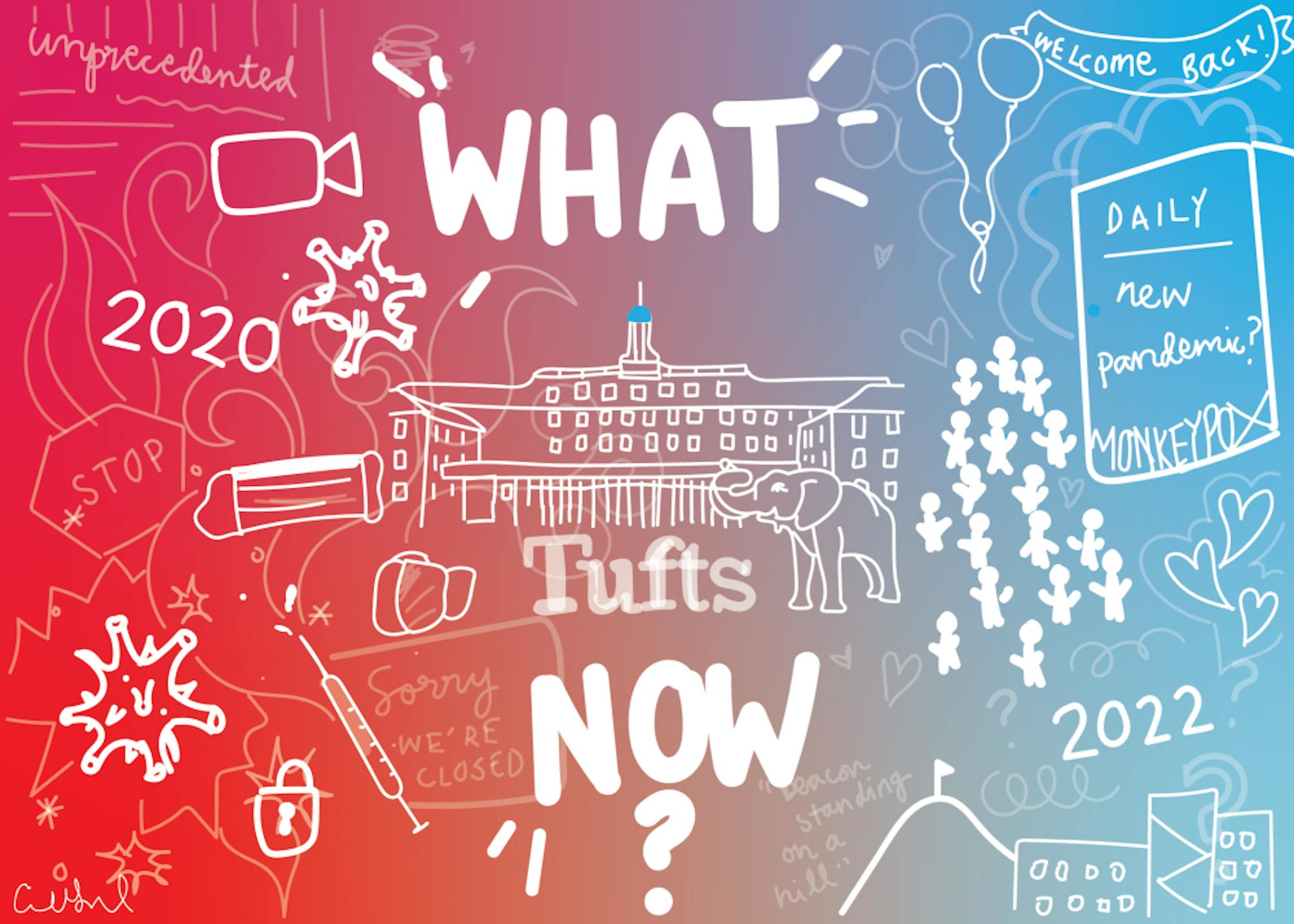Watching the news has been difficult this summer, from conflicts in Europe, Asia and the Middle East to the horror of American politics, where a Supreme Court decision stripped the American people of their right to make choices about their own bodies. On top of these regular violations of human rights across the globe, we are also still suffering from the COVID-19 pandemic while fearing the next global health emergency: monkeypox. Data displays how far from over the COVID-19 pandemic is, especially for the United States, as the U.S. remains in the top five countries for new COVID-19 cases and deaths.
Tufts has loosened COVID-19 restrictions and regulations on campus. Even though the vaccination protocols are the same — Tufts requires everyone to be fully vaccinated and boosted — the isolation and testing policies trust students a little too much. In the beginning of last semester, Tufts required on-campus students to test every other day. On May 6, as finals began last semester, Tufts turned to voluntary testing. Now, however, Tufts is only offering symptomatic testing, which means testing will not be accessible even when a student is contact-traced if they have no symptoms.
The reduction in testing requirements may be logical, considering that many Tufts students got COVID-19 in the spring 2022 semester and will hopefully have immunity for some time. However, some health officials have advised that immunity from getting the most recent strains of the omicron COVID-19 variant may only last one month.
Tufts is also expecting students who test positive to isolate themselves in their own rooms, even if they have a roommate.Tufts first started having COVID-19-positive students isolate in their own rooms after exceeding the capacity of The Mods and quarantine hotels last semester. Initially, they gave priority to those who lived in doubles and triples.
Thus, this isolation policy could be reminiscent of last year’s flawed isolation protocols. This decision could seem unfair to students who are still cautious about COVID-19, as Tufts could maintain or improve the state of The Mods in order to ensure healthy isolation among friends and roommates. However, the majority of students might be too tired to care about the ongoing pandemic after years of taking precautions and still feeling its consequences.
Tufts also published guidelines in response to the monkeypox outbreak, asking students to be more responsible in isolating and consulting with their healthcare provider. Monkeypox has not been taken as seriously as COVID-19 once was, probably because of the low rates of positive cases around the world and because it becomes infectious only when symptoms start, making the disease easier to contain.
This type of infection is drastically different compared to COVID-19. Monkeypox spreads “through close, personal, skin-to-skin contact including direct contact or intimate contact with monkeypox rash, scabs, or body fluids from a person with monkeypox,” according to an email from the Tufts administration, instead of through breathing five feet away from a COVID-19-positive individual. The lower risk of spreading monkeypox could, however, lead to higher cases as people start relaxing too much.
Regardless of this, monkeypox poses a serious threat to college life and college students. Both on-campus and off-campus students should be careful to not share their personal items with other friends, however much trust they may put in each other. Monkeypox spreads through “direct skin-to-skin contact (sexual/intimate contact, including kissing) ... or by contact with an infected individual’s clothing, bedding, towels, or other contaminated objects,” states Tufts. Thus, students are encouraged to be more cautious about who is invited to their rooms, or which parties they choose to go to. This outbreak, consequently, could limit the social and personal lives of Tufts students as well as college students around the world.
These health concerns and restrictions might seem unnecessary and exaggerated for students who want to be able to attend parties as well as classes, who want to be able to be in each other’s dorm rooms as well as seeing each other outside. It has been a tough couple of years since COVID-19 first started, but we can’t let ourselves fall into complacency and forget to protect ourselves and others.
A great, hopefully COVID-19- and monkeypox-free year at Tufts is waiting for us, but only if we take the necessary precautions. Summer is now over; it is time for the world to begin to heal and for Tufts students to be healthy and back on campus.





